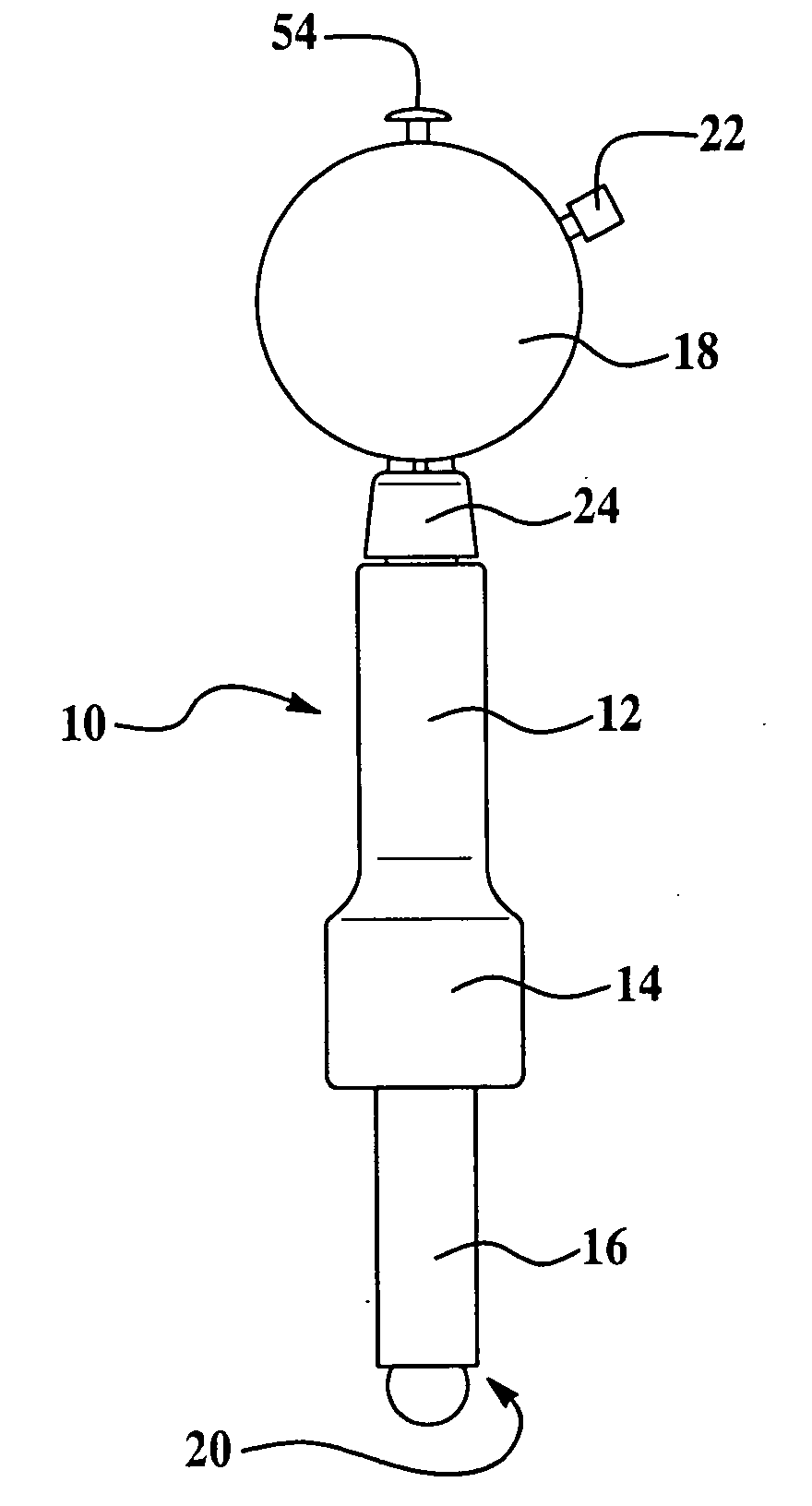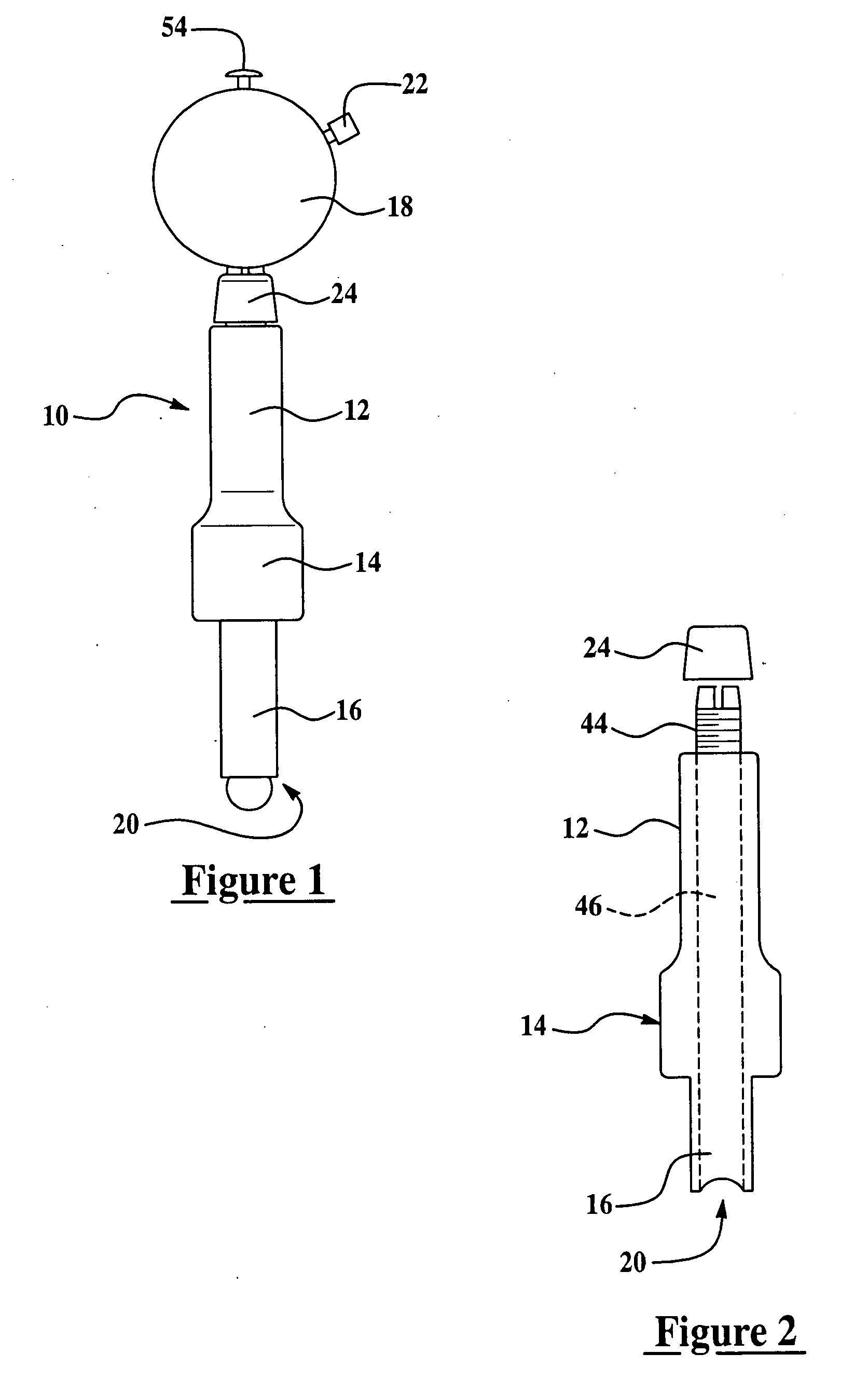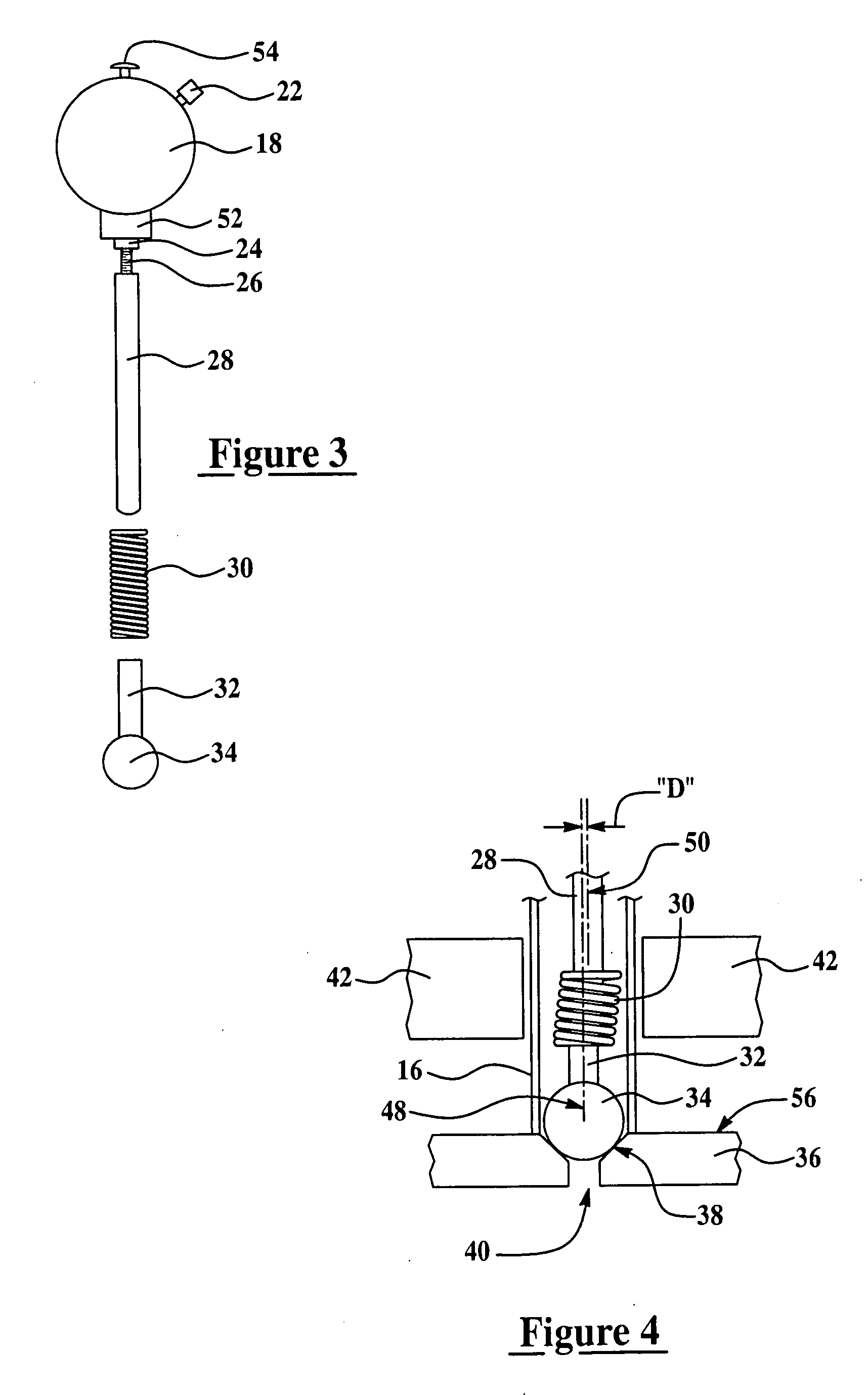Countersink gauge having self-centering probe
a self-centering, counter-sink technology, applied in the direction of measurement gauges, instruments, measurement devices, etc., can solve the problems of measurement error and error, and achieve the effect of reliable and accurate feature measuremen
- Summary
- Abstract
- Description
- Claims
- Application Information
AI Technical Summary
Benefits of technology
Problems solved by technology
Method used
Image
Examples
Embodiment Construction
[0013] Referring to the drawings, a countersink gauge generally indicated by the numeral 10 in FIG. 1 includes an analog indicator 18 for indicating the measurement of a feature such as the countersink diameter, and an elongate body in the form of a tube 12. The tube 12 includes an intermediate knurled section 14 intended to be gripped by a operator, and a lower end 16 in which a later discussed probe 34 is contained. The tube 12 is secured to the indicator 18 by means of a split collet 44 and nut 24 which is sleeved over a short cylindrical extension 52 at the bottom of the indicator 18. Tightening of the nut 24 squeezes the collet 44 onto the extension 52, thus securing the tube 12 on the indicator 18. The tube 12 includes a central, cylindrical bore 46 throughout its entire length. The lower end 16 of tube 12 is provided with a series of actuate cutouts or scallops 20. A screw 22 on the indicator 18 allows rotational adjustment of the face of the indicator 18, and is typically us...
PUM
 Login to View More
Login to View More Abstract
Description
Claims
Application Information
 Login to View More
Login to View More - R&D
- Intellectual Property
- Life Sciences
- Materials
- Tech Scout
- Unparalleled Data Quality
- Higher Quality Content
- 60% Fewer Hallucinations
Browse by: Latest US Patents, China's latest patents, Technical Efficacy Thesaurus, Application Domain, Technology Topic, Popular Technical Reports.
© 2025 PatSnap. All rights reserved.Legal|Privacy policy|Modern Slavery Act Transparency Statement|Sitemap|About US| Contact US: help@patsnap.com



